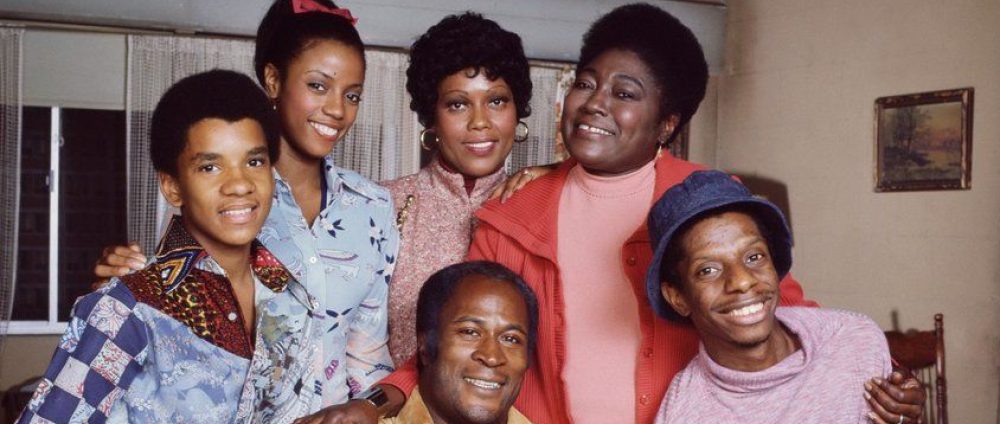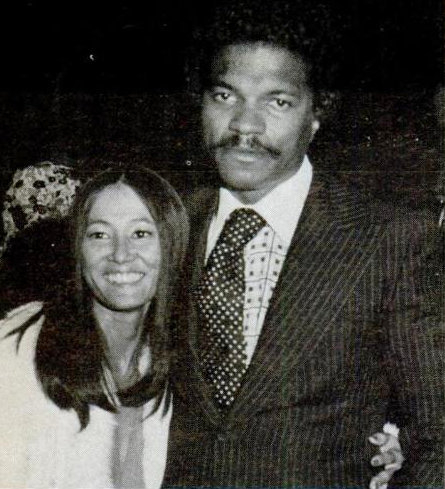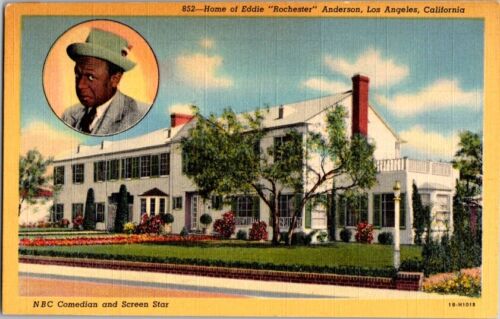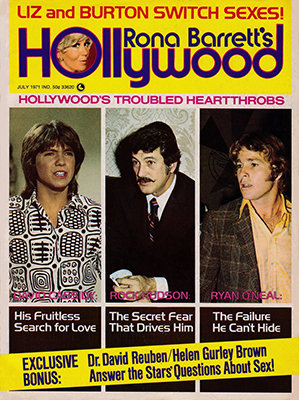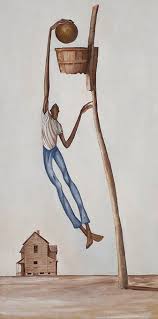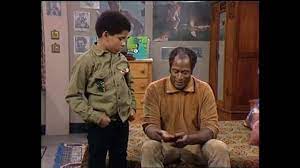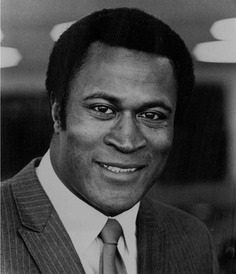
If you’re a fan of Good Times (and if you’re reading these words, you must be!), John Amos may always be James Evans to you. I’m right there with you — his portrayal of the Evans family patriarch is near to my heart, and one of the two characters I most associate with Amos. (The other is Kunta Kinte, from the 1970s miniseries Roots). But Amos was also Gordy on The Mary Tyler Moore Show. Admiral Fitzwallace on The West Wing. Cleo McDowell in Coming to America. And he has numerous other accomplishments – but I’m getting ahead of myself. Let me begin at the beginning.

John Allen Amos, Jr., was born on December 27, 1939, in Newark, New Jersey, the second of two children of Annabelle and John Amos, Sr., an auto mechanic. He grew up in East Orange, New Jersey, and was a running back at East Orange High School (where one of his schoolmates was future star Dionne Warwick.) “The opportunity to play football was one way of getting neighborhood approval,” Amos said in a 2022 interview on the Rational Hour podcast. “And to be a running back – that meant you were in line for glory and fame, possibly, contingent on how good you were. . . . I began to harbor the illusion that I could possibly get a scholarship and maybe even play pro football.” Amos also played on the football team at Colorado State University, where he majored in sociology, and he continued demonstrating his athletic prowess after college by becoming a Golden Gloves boxing champion.

After a stint as a social worker at the Vera Institute of Justice in New York, it appeared that Amos was on the path to achieving his professional football aspirations when he signed on as a free agent with the Denver Broncos of the American Football League in 1964. On the second day of training camp, however, he was released due to a pulled hamstring. Amos recalled that he went on to try out for “more teams than I even knew existed,” and he played with numerous clubs during the next several years, including the Canton Bulldogs of the United Football League, the Wheeling Ironmen of the Continental Football League, and the Jersey City Jets of the Atlantic Coast Football League. In 1967, he returned to the American Football League, signing a free agent contract with the Kansas City Chiefs, but his brief association with the team was cut short by a torn Achilles tendon. To console himself following his injury, Amos wrote a poem entitled “The Turk,” which is a euphemism given to “the guy that releases you from the team when your services are no longer required.” In a 2012 interview with Susan King of the L.A. Times, Amos recalled that Chiefs coach Hank Stram allowed him to read the poem to the team, resulting in a standing ovation. After seeing the team’s reaction, Stram told him, “I think you have another calling.” (To read Amos’s complete poem, “The Turk,” click here.

Not long after, Amos put his football dreams behind him for good. Instead, he became an advertising copywriter and then in 1969, he joined the writing staff for the CBS-TV musical variety series The Leslie Uggams Show. The series only lasted for 10 episodes, but the following year would be a significant one for Amos – he appeared on an episode of The Bill Cosby Show, he landed a gig as a semi-regular on The Tim Conway Show (“It was a good experience and I learned a lot,” he said), and he was tapped for a role on The Mary Tyler Moore Show after some writers who worked for both the Uggams and the Moore shows thought he would be a good fit for a weatherman character. “They wrote me a few lines,” Amos told the L.A. Times, “and thus Gordy was born, and quite frankly I never looked back after that.” He would appear in a total of 12 episodes on the show during the first four seasons, and then return in the seventh season for a final appearance.

During the next couple of years, Amos guested on several television shows, includng Love, American Style and Sanford and Son, played a biker in Sweet Sweetback’s Baadasssss Song (1971), and appeared in a popular singing-dancing commercial for McDonald’s. He made his Broadway debut in 1972 in Tough to Get Help, directed by Carl Reiner, but the play – about a black couple working in a liberal white household – was trashed by critics and closed after only one performance. But the following year, Amos was cast on the hit Norman Lear sitcom Maude (a spinoff of All in the Family) as Henry Evans, the husband of Maude’s maid, Florida (Esther Rolle). He appeared as Henry on three episodes of Maude before Good Times was created as a spinoff, starring Rolle and Amos as Florida and James (no longer Henry) Evans.

Amos remained on Good Times for 61 episodes, but his contract was not renewed after the third season and his character was killed in an automobile accident. Amos had clashed with writers and producer Norman Lear on numerous occasions over the direction of the show. “There were several examples where I said, ‘No, you don’t do these things. It’s anathema to Black society. I’ll be the expert on that, if you don’t mind,’” Amos told Andrew Chow in a 2021 Time.com interview. “They thought I was talking about a revolution here in the studio – and I was. I was a sign of the times that we just weren’t going to take any more, but [I] hadn’t developed the social graces to express our disfavor. And it got confrontational and heated enough that ultimately my being killed off the show was the best solution for everybody concerned, myself included.”
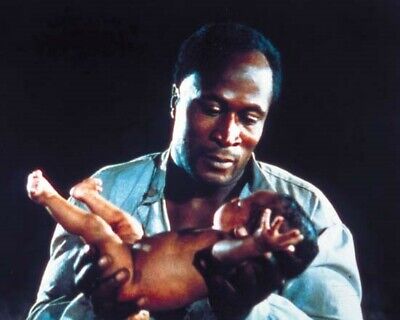
Being let go from Good Times turned out to be nothing more than a momentary blip in Amos’s career. In 1977, he was cast in the groundbreaking mini-series Roots, which told the story of Kunta Kinte, an African boy who is abducted from his home and taken to America, where he lives the rest of his life as a slave. Amos was cast as the adult Kunta Kinte. The show was a massive hit, attracting an estimated 130 million viewers (and this was, of course, in the days before VCRs and streaming when, if you wanted to see a program, you had to be in front of your television when it aired. I know – I was in high school when Roots came on, and my family, and everyone I knew, watched every single night of this eight-part phenomenon). Amos earned an Emmy nomination for his performance, but he lost to his co-star, Louis Gossett, Jr., who played Fiddler.
“It meant so much to me on so many levels,” Amos told Time.com. “I knew that it was a life-changing role for me, as an actor and just from a humanistic standpoint. It was the culmination of all of the misconceptions and stereotypical roles that I had lived and seen being offered to me. It was like a reward for having suffered those indignities.”

Amos never looked back. During the next several decades, he appeared in a wide variety of television shows, from guest spots in such popular programs as The Love Boat, The Cosby Show, The Fresh Prince of Bel Air, and 30 Rock, to starring or recurring roles in series including Hunter, 704 Hauser (another spinoff from All in the Family), The District, All About the Andersons, and The West Wing. In addition, he appeared in numerous films, including The Beastmaster (1982), Coming to America (1988) and its 2021 sequel, Coming 2 America, Die Hard 2 (1990), and Dr. Dolittle 3 (2006). Away from the big and small screens, Amos starred in Twelfth Night at the 1989 New York Shakespeare Festival (in a cast that included Jeff Goldblum, Michelle Pfeiffer, and Gregory Hines); performed in London at the Old Vic Theatre in The Life and Death of a Buffalo Soldier; wrote and produced Halley’s Comet, a one-man play that he performed periodically at venues worldwide for 20 years; and appeared in 2005 opposite Phylicia Rashad in August Wilson’s Gem of the Ocean in Princeton, New Jersey. And in 2017, Amos co-wrote a children’s book, A World Without Color, inspired by the roles that have most impacted his life.
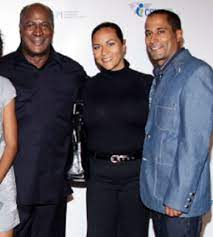
In his personal life, Amos has two children with his first wife, Noel Mickelson, who he met while both were students at Colorado State University; the couple had two children, Shannon and Kelly Christopher (better known as K.C.). Shannon is the founder of Afterglow Multimedia, a talent management and production company, and K.C. is a Grammy-nominated filmmaker. (K.C. frequently posts videos of his father on TikTok. You can check them out at kc.filmmaker.)
Amos, who turned 83 in December 2022, is still working; in 2019, he made a surprise cameo appearance on a live television restaging of Good Times, called Live in Front of a Studio Audience, co-produced and co-hosted by Good Times creator Norman Lear.

The cast, which included Andre Braugher as James and Viola Davis as Florida, performed the series’ third season episode, “The Politician”; Amos played the role of Ald. Fred C. Davis. Other recent appearances include Uncut Gems (2019), Me Time (2022), and an episode of The Righteous Gemstones, and he will be seen in the upcoming comedy, Capture the Flag, co-starring Dick Van Dyke, Louis Gossett, Jr., Paul Dooley, and Barry Corbin.
“I will continue to work until I can’t work anymore. Norman [Lear] is still working well into his nineties,” Amos told Entertainment Weekly following the broadcast of the Good Times reboot. “He makes me feel like I’m just getting started.”
